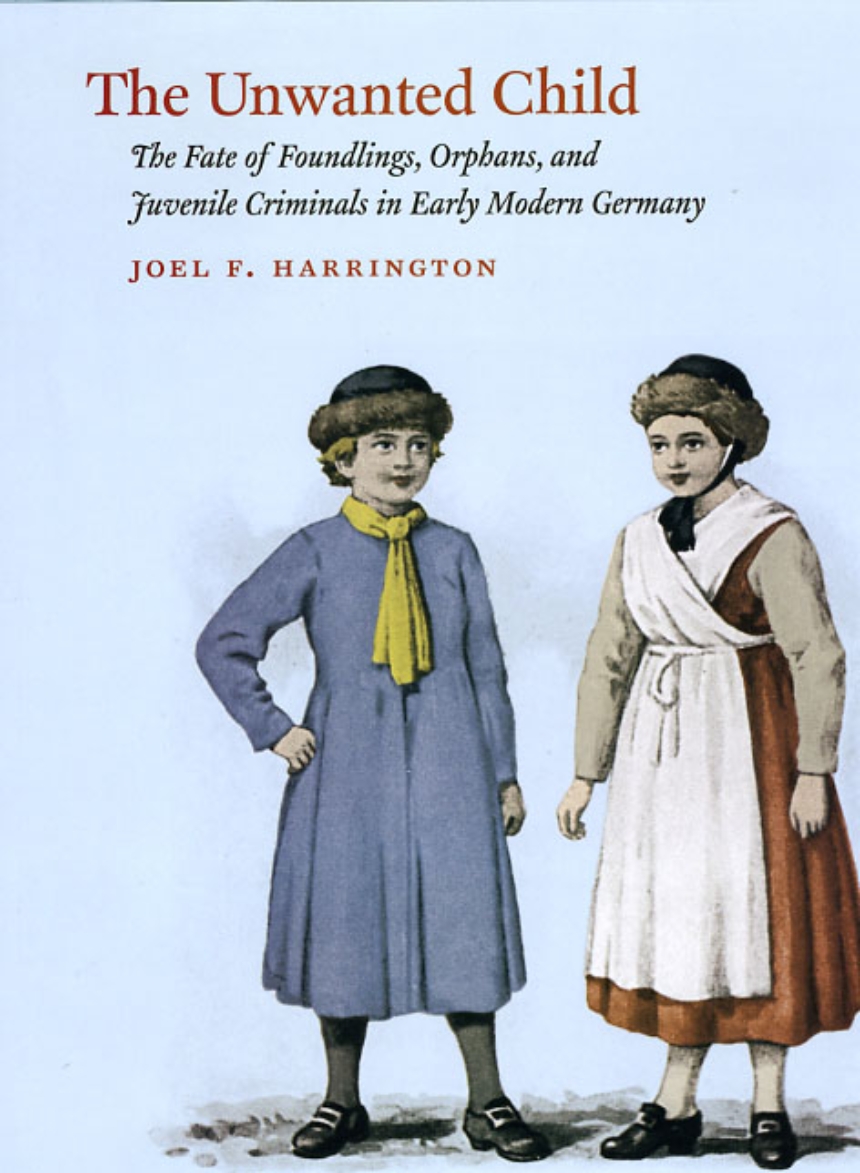The Unwanted Child
The Fate of Foundlings, Orphans, and Juvenile Criminals in Early Modern Germany
The Unwanted Child
The Fate of Foundlings, Orphans, and Juvenile Criminals in Early Modern Germany
The baby abandoned on the doorstep is a phenomenon that has virtually disappeared from our experience, but in the early modern world, unwanted children were a very real problem for parents, government officials, and society. The Unwanted Child skillfully recreates sixteenth-century Nuremberg to explore what befell abandoned, neglected, abused, or delinquent children in this critical period.
Joel F. Harrington tackles this question by focusing on the stories of five individuals. In vivid and poignant detail, he recounts the experiences of an unmarried mother-to-be, a roaming mercenary who drifts in and out of his children’s lives, a civic leader handling the government’s response to problems arising from unwanted children, a homeless teenager turned prolific thief, and orphaned twins who enter state care at the age of nine. Braiding together these compelling portraits, Harrington uncovers and analyzes the key elements that link them, including the impact of war and the vital importance of informal networks among women. From the harrowing to the inspiring, The Unwanted Child paints a gripping picture of life on the streets five centuries ago.
456 pages | 64 halftones, 9 line drawings | 6 x 9 | © 2009
History: European History
Sociology: Individual, State and Society, Sociology--Marriage and Family, Urban and Rural Sociology
Reviews
Table of Contents
List of Illustrations
Note on Usage
Acknowledgments
INTRODUCTION
ONE / The Unmarried Mother
TWO / The Absconding Father
THREE / The Beleaguered Magistrate
FOUR / The Street Orphan
FIVE / The State Wards
SIX / From Micro- to Macro-: Individuals and the Big Picture
Appendix 1 / The Findelkinder Database
Appendix 2 / Known Infanticides in Nuremberg, 1384–1806
List of Abbreviations
Notes
Bibliography
Awards
History Today/Addison Wesley Longman: Longman/History Today Awards
Shortlist
Sixteenth Century Studies Conference: Roland H. Bainton Book Prize
Won
